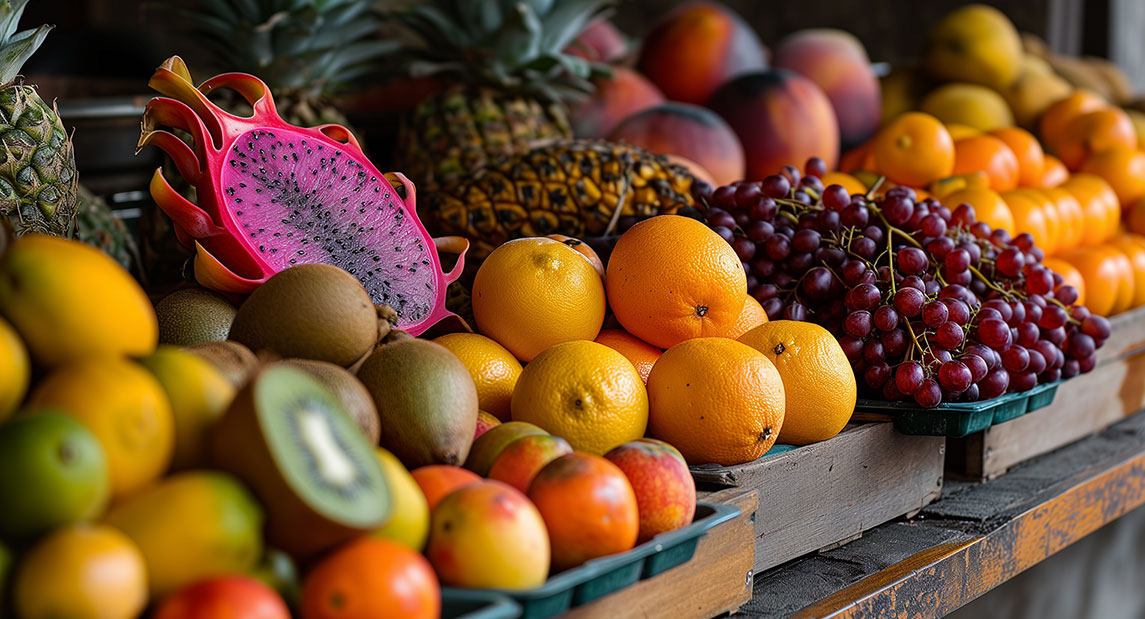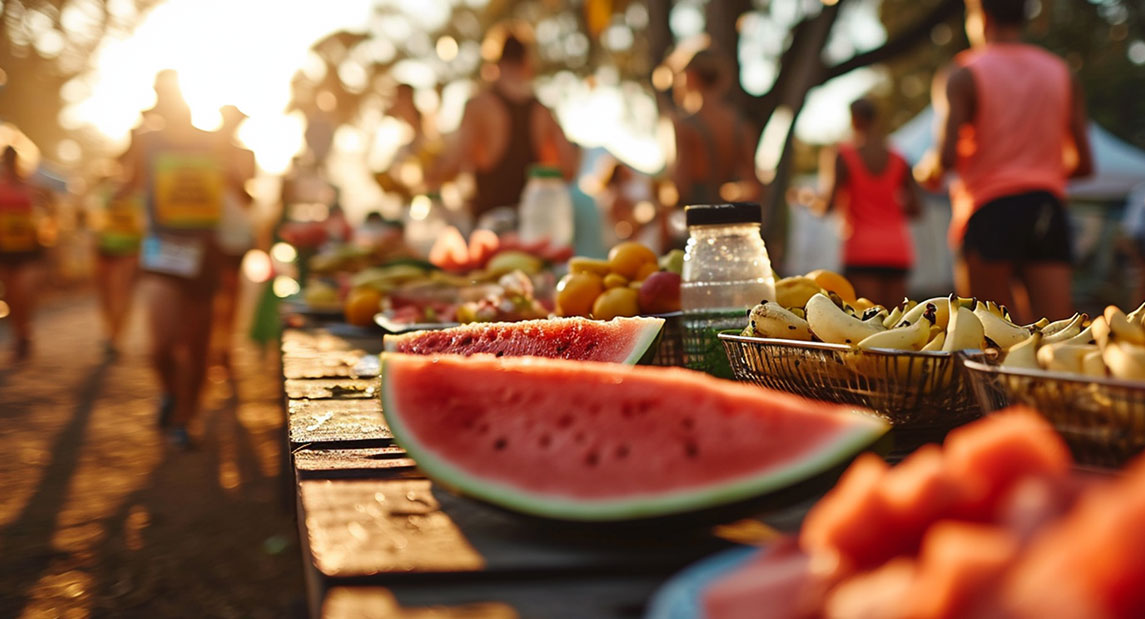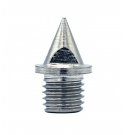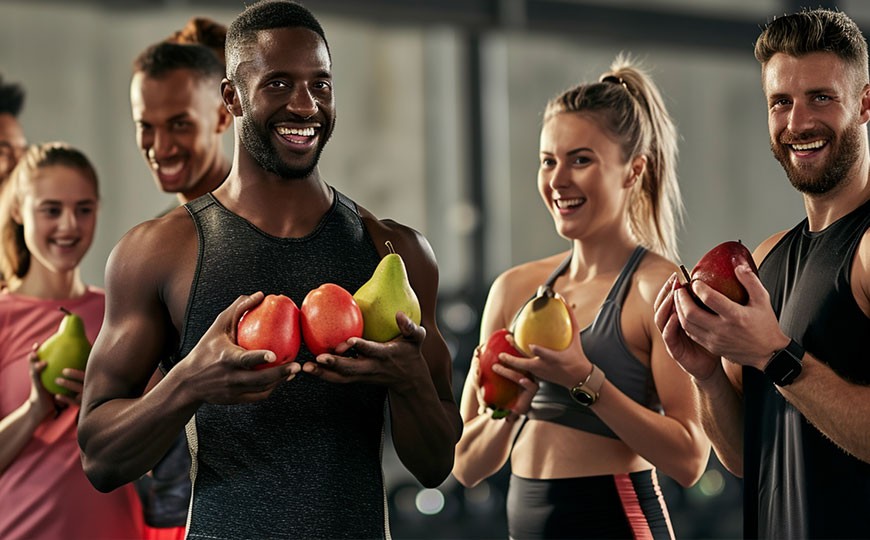The Essential Role of Fruits in Sports Nutrition
Powering Athletic Performance: The Essential Role of Fruits in Sports Nutrition
Introduction
At the heart of modern sports nutrition lies the balanced intake of essential nutrients, crucial for the optimal performance and recovery of athletes. Fruit, often viewed as nature’s candy, surprisingly plays a central role in this. Rich in vitamins, minerals, dietary fibers, and a variety of phytonutrients, fruits offer more than just a natural source of sugar.
While the term “fruit” is often associated with fructose or “natural sugar,” the truth is much more complex. Besides carbohydrates, fruits provide essential proteins and amino acids, vital for muscle building and digestion. The dietary fibers in fruit not only aid in digestion but also contribute to a lasting feeling of fullness, making them an ideal snack for active individuals.
In addition to fruits, other plant-based foods like legumes and nuts also offer significant nutritional value. These foods are not only rich in proteins and carbohydrates but also in vital minerals, making them an excellent addition to sports nutrition.
In the following sections, we will explore in detail the specific benefits of various fruits for athletes and demonstrate how a balanced diet with fruits and other plant-based foods can support performance and recovery.

Biological Importance of Fruit as a Nutritional Source for Athletes
Fruit is much more than just a source of vitamins and minerals; it is an essential component of proper nutrition for athletes. In the world of sports nutrition, fresh fruit is frequently used to replenish glycogen stores, which is crucial for muscle and metabolism during intense physical activities.
Rich in magnesium, potassium, and a variety of antioxidants, fruit plays a key role in maintaining healthy muscle tone and preventing cramps. It is also known that certain types of fruit contain fatty acids beneficial for heart health and endurance performance.
Additionally, fruit offers a low-fat dietary option, which is recommended by the Society for Nutrition as important for maintaining a healthy body weight and optimal performance. Combined with other sources of nutrients like dairy products and minerals, fruit becomes an indispensable part of every athlete’s diet.
For further insights into the importance of sports nutrition, refer to this article.
Health Benefits of Fruits for Athletes
Fruit plays a fundamental role in sports nutrition, especially in endurance and strength sports.
Endurance Sports
In endurance sports, such as triathlons, long-distance swimming, cycling races, and ultramarathons, food intake during physical activity is critical for maintaining energy and performance. Bananas and oranges are ideal for this, as they are rich in quickly digestible carbohydrates. These fruits help to efficiently replenish glycogen stores in the body. Glycogen, the storage form of glucose in muscles and liver, is the primary energy source during prolonged physical activity. A study by Nieman et al. (2012) showed that consuming bananas during a long cycling race supports performance and reduces inflammation markers, comparable to commercial sports drinks.

Strength Sports
In strength sports, amino acids and proteins are essential for muscle building and recovery after training. Proteins, made up of amino acids, are crucial for repairing and strengthening muscle fibers. They help repair micro-tears in the muscles that occur during training. Avocados, a significant fruit in strength sports, are rich in healthy fats and aid muscle recovery. These fats contribute not only to energy supply but also have anti-inflammatory properties that promote healing after intense training sessions.
Recovery and Regeneration
For recovery and regeneration after a workout, fruits are particularly valuable due to their nutrient profile. Studies like the one by Nieman et al. (2012), which examined the effects of bananas on cyclists, show that certain fruits have anti-inflammatory effects, contributing to faster recovery. The high content of vitamins, minerals, and antioxidants in fruits supports the repair of micro-tears in muscles and helps reduce oxidative stress. This process is crucial for the regeneration of muscle fibers and the restoration of performance. For example, cherries, rich in antioxidants, help reduce muscle soreness and inflammation after intense training. A study by Bell et al. (2014) demonstrated that blueberries can decrease inflammation and muscle soreness following intense workouts. Watermelon, rich in L-citrulline, aids in improving muscle blood flow, thus speeding up recovery. Pomegranates, known for their high antioxidant content, support the reduction of muscle inflammation and promote recovery. These examples illustrate how specific fruits can contribute to regeneration and reduce muscle soreness.
Weight Balance
For athletes, maintaining an optimal body weight is essential. Fruit, as part of a balanced diet along with whole grains, oatmeal, and muesli, aids in weight control while providing essential nutrients.
For specific breakfast tips for runners, including the integration of vegetables and fruits, refer to this article. A healthy breakfast about two to three hours before running can significantly enhance performance.
Detailed Analysis of Individual Fruit Types
The following table is based on general nutritional information and the specific benefits for athletes, as discussed in various studies. Each of these fruit types offers unique advantages, ranging from providing energy and aiding in recovery to promoting a well-rounded diet.
| Fruit Type | Nutritional Values (per 100g) | Special Benefits for Athletes | Suitable for |
| Bananas | Approx. 23g Carbs, 1g Protein, rich in Potassium | Quick energy supply, muscle and nerve function | Endurance sports, recovery |
| Berries | Low in calories, rich in antioxidants | Protection against oxidative stress, regeneration | Endurance sports, recovery |
| Mango | Approx. 15g Carbs, rich in Vitamin C | Immune system, energy provision | Endurance sports |
| Dragon Fruit | Approx. 13g Carbs, Vitamin C, Iron | Digestion, cell renewal | Recovery |
| Watermelon | Approx. 8g Carbs, L-Citrulline | Hydration, muscle blood flow | Endurance sports, recovery, strength sports |
| Grapes | Approx. 17g Carbs, Polyphenols | Antioxidant effect, energy | Endurance sports |
| Kiwi | Approx. 15g Carbs, rich in Vitamin C | Immune system, digestion | Endurance sports, recovery |
| Oranges | Approx. 12g Carbs, Vitamin C | Immune support, energy | Endurance sports |
| Lemon | Low in Carbs, Vitamin C | Immune system, detoxification | Recovery |
| Apple | Approx. 14g Carbs, Dietary Fibers | Long-lasting energy, digestion | Endurance sports, recovery, strength sports |
| Avocados | Approx. 9g Carbs, rich in healthy fats | Muscle regeneration, energy | Strength sports |
In addition to these benefits, these types of fruit can help stabilize blood sugar levels, control body weight, and keep athletes satiated for longer periods. They provide essential vitamins and minerals, particularly important for athletes to meet their increased energy needs and to replenish lost electrolytes (for instance, through sweating). Some fruits have a low glycemic index, which means they raise blood sugar more slowly, thus offering a more sustainable source of energy.

Optimal Consumption of Fruits in a Sporting Context
Optimal fruit consumption in the context of sports is crucial to adequately support the body before, during, and after training or competition. While strength and endurance sports have different nutritional needs, the targeted selection and timing of fruit consumption are key elements in maximizing performance and promoting recovery. In this section, we will explore which fruits are best suited for which sport and how they can contribute to enhanced performance and faster recovery.
The optimal fruit consumption in a sporting context varies depending on the discipline:
Strength Sports:
-
Before Training: Fruits with low-fat content and high carbohydrate values, such as bananas, about an hour before training for energy supply.
-
After Training: Fruits that support protein and omega-3 fatty acid intake, like avocados, to promote muscle recovery and building.
Endurance Sports:
-
During Training/Competition: Quick energy from dried fruits, ideal for longer endurance activities.
-
After Training/Competition: Carbohydrate-rich fruits like grapes or melons for rapid replenishment of energy reserves.
Competition Days:
-
Short Distances (e.g., 100-Meter Sprint): Focus on light, easily digestible carbohydrates shortly before the competition.
-
Long Distances (e.g., Marathon): Continuous energy supply with a mix of carbohydrates and electrolytes, even during the competition.
Generally, fluid intake (at least 2 liters) with isotonic drinks and fruit-rich sources of vitamins and minerals should be ensured.

Alternatives to Fruits and Their Comparison
Alternatives to fruits in sports nutrition include vegetables and legumes, which offer a healthy and balanced supplement. Vegetables provide essential vitamins, minerals, and phytonutrients that are important for recovery and overall health. Legumes are an excellent source of protein, crucial for muscle building, and also offer fiber-rich foods that deliver long-lasting energy. They are ideal for reducing simple carbohydrates and saturated fats in the diet, thus ensuring optimal nutrition during athletic exertion.
Examination of Biochemical Processes and Mechanisms of Action
The scientific foundations of fruit effects are based on extensive studies of biochemical processes and mechanisms of action.
A study by Nieman et al. (2012) demonstrates that bananas support athletic performance similarly to commercial sports drinks and reduce inflammation markers. This underscores the role of fruits as a source of energy and their anti-inflammatory properties.
Another study by Bell et al. (2014) highlights that blueberries can reduce muscle soreness and inflammatory responses after intense workouts. These results illustrate how certain fruits contribute to energy generation and regeneration, which is especially relevant for athletes.
Watermelon: A study by A. Priya & R. Rosalin Nikitha (2022) and M. P. Tarazona-Díaz et al. (2013) shows that L-Citrulline in watermelon alleviates muscle fatigue, making it a valuable addition for athletes. L-Citrulline in watermelon supports muscle blood flow, leading to more effective oxygen and nutrient supply to the muscles, thereby aiding in the relief of muscle fatigue and pain. G. Saavedra et al. (2015) discovered that watermelon rind is a source of electrolytes.
Cherries: Kelley et al. (2006) showed that consuming cherries lowers inflammation markers. Traustadóttir et al. (2009) and Howatson et al. (2010) found that tart cherry juice reduces oxidative stress and muscle fatigue after marathon running.
Dragon Fruit:
The study “Lactic Acid Level in Soccer Who Consume Red Dragon Fruit Juice and Regular Exercise” by N S Harahap et al. (2021) investigates the effect of red dragon fruit juice on lactate levels in soccer players. The results indicate that consuming red dragon fruit juice in conjunction with regular training helps reduce the increase in lactate levels. This suggests that dragon fruit has antioxidant properties that can support muscle regeneration and the management of exercise-based fatigue.
Mango:
The study “Effects of Fresh Mango Fruit Consumption on Glucose, Insulin, and Satiety Hormones” (Mario G. Ferruzzi et al., San Diego State University) examines the impact of consuming fresh mango on blood glucose, insulin, and satiety hormones in overweight adults. The findings show that consuming mango, as opposed to calorically similar, low-fat cookies, leads to a lower increase in glucose and insulin and increases the hormone adiponectin, which plays a role in regulating blood sugar levels and fat metabolism. These insights suggest that mango can serve as a healthy snack to stabilize the postprandial glycemic response.
Conclusion:
This article has comprehensively examined the role of fruit in sports nutrition. It has become clear that fruits provide essential nutrients such as magnesium, potassium, and fatty acids, which are important for muscle function, metabolism, and replenishing glycogen stores. The intake of fresh fruit, in combination with dairy products and low-fat foods, supports a balanced and healthy diet. Overall, fruit significantly contributes to enhanced performance, faster recovery, and the maintenance of general health, making it an indispensable part of an athlete’s diet.
26-12-2023 KOWLOONSPORTS


 Español
Español Deutsch
Deutsch English GB
English GB




Leave a Reply Cancel Reply